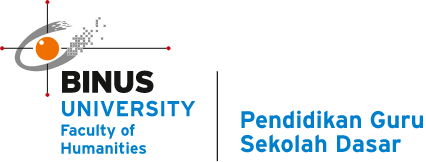A Review on The Routledge Dictionary of Literary Terms by Peter Childs and Roger Fowler
Oleh:
Jimmy Sapoetra
A. An Overview of the Dictionary
The Routledge Dictionary of Literary Terms is a twenty-first century update of Roger Fowler’s seminal Dictionary of Modern Critical Terms.Bringing together original entries written by such celebrated theorists as Terry Eagleton and Malcolm Bradbury with new definitions of current terms and controversies, this is the essential reference book for students of literature at all levels. This book includes: new definitions of contemporary critical issues such as ‘Cybercriticism’ and ‘Globalization’, an exhaustive range of entries, covering numerous aspects to such topics as genre, form, cultural theory and literary technique, complete coverage of traditional and radical approaches to the study and production of literature, thorough accounts of critical terminology and analyses of key academic debates, and full cross-referencing throughout and suggestions for further reading.Covering both long-established terminology as well as the specialist vocabulary of modern theoretical schools, TheRoutledge Dictionary of Literary Terms is an indispensable guide to the principal terms and concepts encountered in debates over literary studies in the twenty-first century.The book differs from other ‘dictionaries of criticism’ in concentrating less on time-honoured rhetorical terms and more on conceptually flexible, powerful and contemporary critical terms. Each entry consists not simply of a ‘dictionary definition’ but an essay exploring the history and full significance of the term, and its possibilities in contemporary critical discourse.
B. Target Users
The dictionary is intended to be used by students of English Department, particularly those who are majoring in English Literature. The words and their definitions were clearly written with rich and varied examples from different backgrounds. The illustrations given are helpful for literature analysis or literary criticism. Since the dictionary has a lot of useful resources for literature studies, I would recommend the book to be used by those who want to study literature as an introduction, intermediate or even at an advanced level.
This paper is a review of The Routledge Dictionary of Literary Terms published in 2006. Despite of its great contribution to the world of literature and literature studies, the dictionary has some flaws. Normally, all dictionaries have their own weaknesses. Therefore, good dictionaries ideally would have to revise their editions published periodically. Hopefully, the review, which due to some limitations, cannot cover the entire aspects of a dictionary and discuss as many examples as possible, would contribute to the revision of the later edition of the dictionary.
C. The Merits of the Dictionary
The Routledge Dictionary of Literary Terms, published in 2006, is more comprehensive than other similar dictionaries due to a number of factors. Firstly, compared to other dictionaries like NTC Dictionary of Literary Terms, published in 1991, and the popular The Oxford Dictionary of Literary Terms written by Chris Baldick, published in 2005 by Oxford, Routledge is the thinnest in the number of pages (253 pages). Secondly, although it has fewer pages, the book claims to be conceptually flexible, powerful and contemporary critical terms. Each entry consists not simply of a ‘dictionary definition’ but an essay exploring the history and full significance of the term, and its possibilities in contemporary critical discourse.
Table 1 Routledge compared to other dictionaries
| Dictionaries | Years of Publication | Numbers of Entries | Numbers of Pages | Target Users |
| Routledge | 2006 | 311 | 253 | Literature students |
| Oxford | 2005 | 790 | 320 | Literature students |
| NTC | 1991 | 600 | 304 | Literature students |
In addition, Routledge clearly took its primary and secondary sources. The primary sources included the literary works taken from novels, proses, and poetries such as Hamlet by Shakespeare, etc. The secondary sources comprises various subject-specific dictionaries from language, literature, history, sociology, psychology, etc. The other two dictionaries did not take their sources as complete and detailed as Routledge did.



Comments :